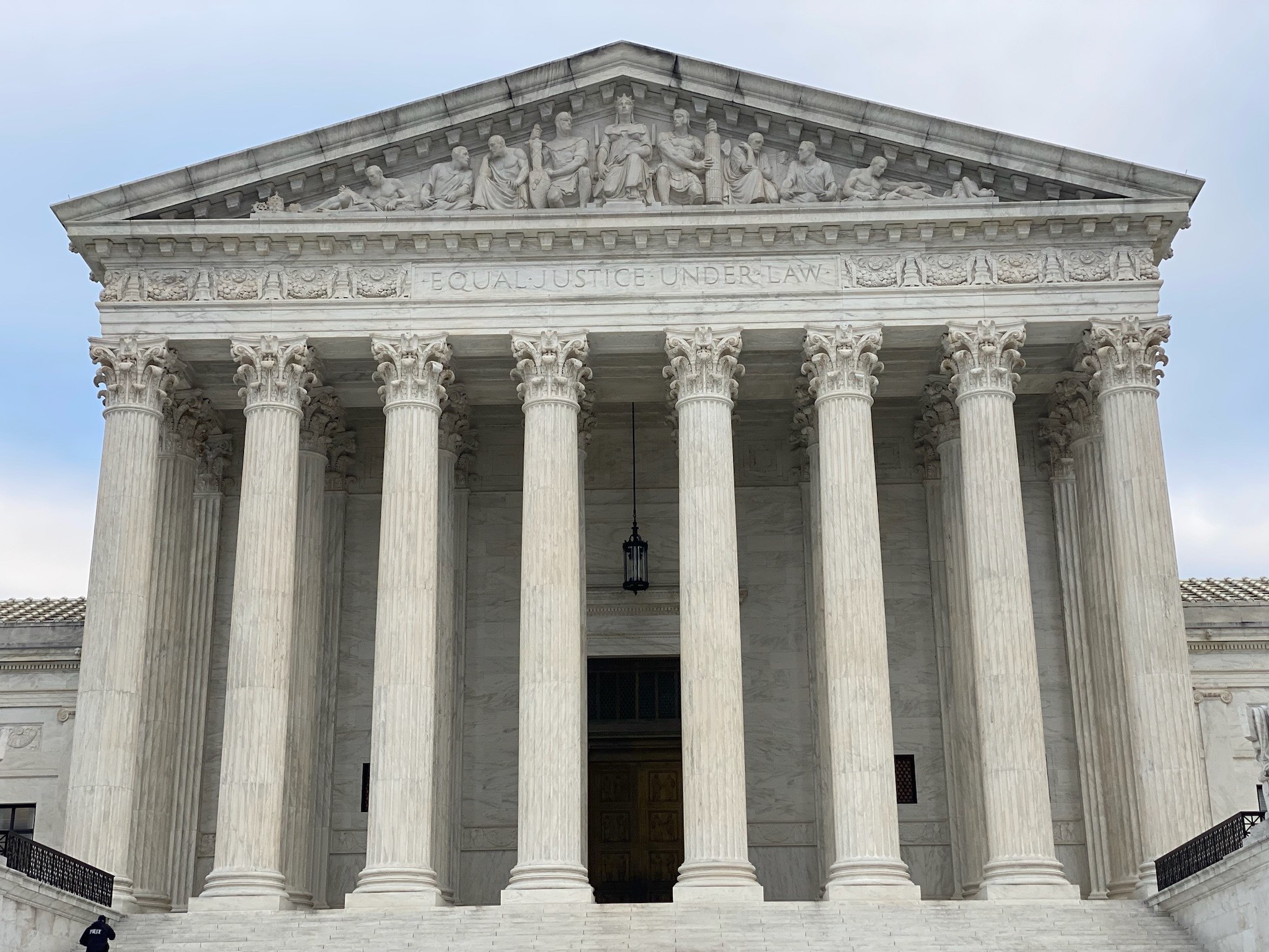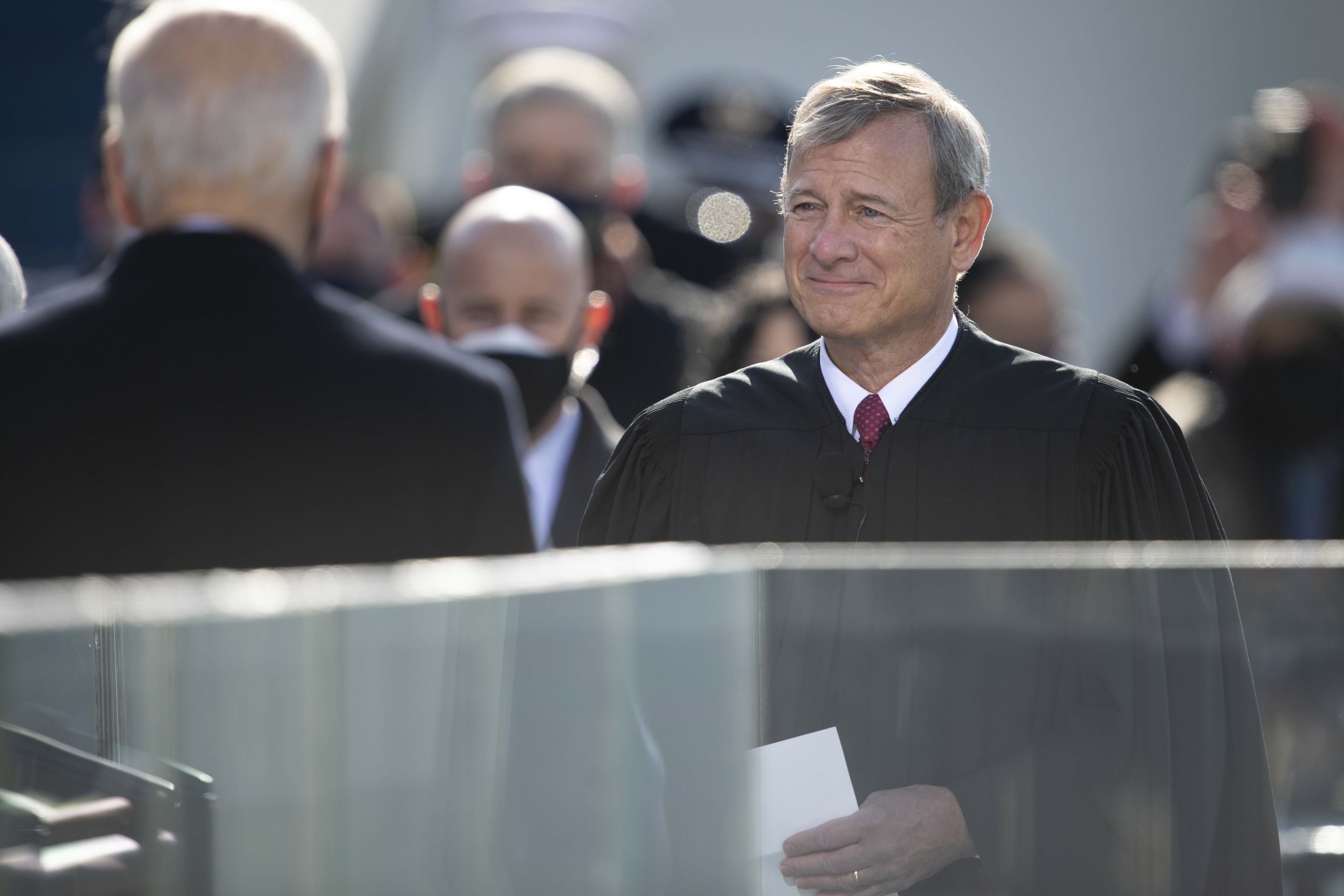Justices rule lower courts must put trial proceedings on hold during arbitration appeal
OPINION ANALYSIS
on Jun 23, 2023
at 6:37 pm
The Supreme Court ruled in Coinbase, Inc. v. Bielski on Friday. (Katie Barlow)
Friday’s decision in Coinbase v. Bielski has a familiar ring to it: A narrow majority of the justices reversed a ruling of the U.S. Court of Appeals for the 9th Circuit in California that had rejected a party’s efforts to force a putative class action out of court and into arbitration. The result of the Supreme Court’s decision here is that the proceedings in the federal district court will come to a halt until the appellate court finally decides if arbitration is required.
The case comes from a dispute between Coinbase (a leading cryptocurrency platform) and a group of its customers. Coinbase thinks that its user agreement forces the customers into arbitration, but the district court disagreed. The question for the justices was whether the district court had to halt – or “stay” — the pre-trial proceedings while the appellate court considered that ruling. The court of appeals allowed the district court to move forward. Justice Brett Kavanaugh’s opinion for a narrow majority of five justices reverses that ruling.
The case turns on a 1988 amendment to the Federal Arbitration Act, which added the current Section 16(a) to that statute. Contrary to the general rule in federal courts that parties cannot appeal from adverse trial-court decisions until the end of the case, Section 16(a) sets up a “one-way” right to an immediate (“interlocutory”) appeal: The party seeking arbitration can appeal immediately if the trial court refuses to order arbitration, but the party opposing arbitration has no similar right if the trial court does order arbitration. The question in Coinbase is what the district court is supposed to do while the Section 16(a) appeal is progressing: Sit on its hands and do nothing, or proceed toward trial?
Kavanaugh candidly acknowledged that “Section 16(a) does not say whether the district court proceedings must be stayed,” but he found his answer in “a clear background principle prescribed by this Court’s precedents.” For the majority, that “principle” comes from a 1982 Supreme Court case, Griggs v. Provident Consumer Discount Co., in which the justices explained that an appeal “divests” a federal trial court of control “over those aspects of the case involved in the appeal.” Kavanaugh reasoned that when “the question on appeal is whether the case belongs in arbitration or instead in the district court, the entire case is essentially ‘involved in the appeal.’”
Kavanaugh buttressed the majority’s conclusion with quotes from lower-court decisions and the leading treatises on federal procedure. For example, he quoted one court reasoning that “the question of whether ‘the case should be litigated in the district court … is the mirror image of the question presented on appeal’” and another concluding that “it ‘makes no sense for trial to go forward while the court of appeals cogitates on whether there should be one.’” In the same vein, Kavanaugh noted that Moore’s treatise relies on Griggs for the view that a “‘stay in these circumstances’ is ‘the sounder approach,’” while Wright & Miller opine that a “‘complete stay of district-court proceedings pending appeal from a refusal to order arbitration is desirable’ because ‘[c]ontinued trial-court proceedings pending appeal could lead to an entirely wasted trial if arbitration is ordered on appeal.’”
Kavanaugh then turned to policy, contending that the “common practice” of granting a stay in these cases “reflects common sense,” because the contrary rule would leave “Congress’s decision in § 16(a) to afford a right of interlocutory appeal … largely nullified.” Here, Kavanaugh offered a refrain – familiar from so many of the court’s recent decisions about arbitration – about the general superiority of arbitration to conventional litigation – “efficiency, less expense, less intrusive discovery, and the like” – and suggests that progress toward trial pending the arbitrability appeal means that those benefits “would be irretrievably lost.” The desire of the defendant to avoid those expenses creates what the majority saw as a “potential for coercion [that] is especially pronounced in class actions, where the possibility of liability can lead to … ‘blackmail settlements.’” Thus, Kavanaugh quipped, the “right to interlocutory appeal … without an automatic stay [is] like a lock without a key, a bat without a ball, a computer without a keyboard — in other words, not especially sensible.”
For his last affirmative point, Kavanaugh argued that “Congress’s longstanding practice both reflects and reinforces the Griggs rule.” Kavanaugh suggested a two-pronged analysis. On the one hand, when Congress “wants to authorize an interlocutory appeal and automatically stay [trial] proceedings during that appeal, Congress need not say anything about a stay,” because “the background Griggs principle already requires an automatic stay of district court proceedings.” On the other hand, “when Congress wants to authorize an interlocutory appeal, but not to automatically stay district court proceedings …, Congress typically says so.” Kavanaugh noted that Congress “has enacted multiple statutory ‘non-stay’ provisions” implementing that perspective, including one the day before it adopted Section 16(a) in 1988.
Finished with his affirmative case, Kavanaugh closed with three pages that briskly explain why the majority believed that none of Abraham Bielski’s “five main arguments … is persuasive.” Although this part of the opinion reads as superfluous to the court’s decision, it warrants careful reading, as it includes the most general discussion of stays and appealability and well might end up being the part of the opinion with the most substantial precedential impact. Accordingly, it seems appropriate to mention each of the five points, at least briefly:
- The first was “that an automatic stay would encourage frivolous appeals.” For the majority, Bielski has failed to “establis[h] that frivolous appeals frequently occur” and in any event “the court of appeals possess robust tools to prevent unwarranted delay and deter frivolous interlocutory appeals.”
- Bielski’s second argument “contrasts § 16(a) with two other statutory provisions that contain an explicit stay requirement.” For Kavanaugh, neither of those provisions was probative because neither involves a situation that “fall[s] within the Griggs ” Congress needed to provide for a stay in those cases because Griggs would not automatically have granted one.
- Bielski’s third argument was that the majority “create[s] a special arbitration-preferring procedural rule.” Kavanaugh simply retorted that Bielski is “incorrect” because “Bielski’s proposed approach would disfavor”
- Bielski’s fourth argument was that “the ordinary discretionary stay factors would adequately protect parties’ rights to an interlocutory appellate [ruling].” Kavanaugh countered that “experience” rebuts that point, because “courts … applying the usual four-factor standard for a discretionary stay often deny stays in § 16(a) appeals because courts applying that test often do not consider litigation-related burdens … to constitute irreparable harm.” The earlier discussion of “blackmail settlements” suggests that this perspective well might be a principal driver of the majority’s determination.
- Fifth, Bielski pointed to a Supreme Court decision stating that arbitrability is “severable from the merits of the underlying disputes.” For the majority, that snippet said nothing about “the sole issue here[,] whether the district court’s authority to consider a case is ‘involved in the appeal’ when an appellate court considers the threshold question of arbitrability.”
The reader of the court’s arbitration decisions cannot be surprised by the outcome here at the big-picture level – the party proposing arbitration wins a victory that is compelled neither by any federal statute nor by the holding of any prior Supreme Court opinion. The dissent of Justice Ketanji Brown Jackson (joined by Justices Elena Kagan and Sonia Sotomayor and for the most part by Justice Clarence Thomas) makes those points pretty successfully.
What is unusual here is that the justification is not based on something as insular as interpreting the purposes of the Federal Arbitration Act. Rather, the decision here makes confident and uncompromising assertions about how federal courts should decide when to grant stays in the face of an interlocutory appeal. That is a problem that occurs in many contexts, the great majority of which probably have nothing to do with the particular practicalities of arbitration that seem to drive the conclusion in Bielski. It is fair to expect, then, that this decision might end up being more generally important than the great majority of the decisions in that ever-lengthening line of pro-arbitration rulings.






